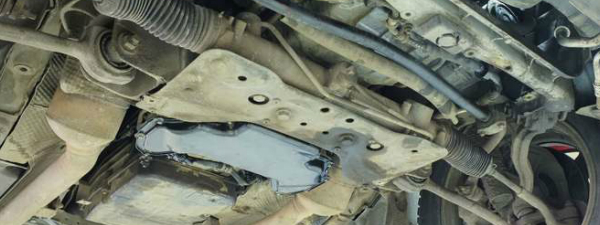Metals containing iron, when exposed to air and water will rust. Rust affects metals in many ways. Therefore, if a piece of the metal determines the safety of objects like bridges and breaks the caliper of a car, then it is essential to keep them under check regularly. Rust is non-toxic and presents no biological hazards. The only thing you need to worry about is the degradation of the material. The other effects rust can have on your car are given below,
It can severely affect the metals and makes them weaker. The effective functioning of a car depends on the strength of most of its parts. Iron used in suspension struts and coil springs of a car is not very strong. So these are the parts that get disintegrated first due to rust. It is important to keep braking components away from corrosion because the safety of the vehicle depends on it.
Rust can cause the metal parts to get stuck when they are supposed to slide over each other.
Rusty car mufflers and the outer bodies of the car can develop holes in them due to rust.
It affects the magnetic properties of a metal.
Iron is a good conductor of electricity. But rust is an insulator and when it affects iron, it decreases its conductivity. If there is any electric connection in the car made with iron, it can go bad with rusting.
There are many rust-proofing methods that can prevent the formation of rust. They are discussed here,
Galvanizing is the method of applying a protective layer of zinc over iron or steel to prevent rusting. The zinc forms a barrier between the atmosphere and the metal underneath it. Though galvanized metal can get corroded eventually, it can still take decades. The corrosion resistance offered by the zinc depends on the thickness of the coating and the severity of the environment. Accurately predicting the lifetime of a coating is important for planning the budget and maintenance issues.
Rust inhibitor sprays can form a layer, coating the metals and preventing access of any corrosive substance to the metal inside a sealed system.
Rust can be avoided by controlling the humidity of the environment around a car.
Rust proofing spray can oil the body of the car and when applied annually, can prevent the formation of the rust. It can easily enter into tiny spaces, folds, and joints and protect them from rust. It can also save electrical components, brake, and fuel lines from getting rusted.
Rust can also be prevented by passing an electric charge that can suppress the electrochemical reaction (oxidation). A special electrical device can be used for this purpose.
The prevention of rust has become the basis of many researches because of the wide usage of iron and steel not only in the cars but also in various other technologies.

